The children are taught in their class for all English lessons. Our English lessons consist of Active Read sessions, English writing sessions and discrete grammar and spelling sessions. We use books as stimuli for our reading and writing sessions and they cover a range of genres from historical fiction to modern fiction and many genres in-between. Throughout the two years, the children develop their skills in order to write in a variety of styles (e.g. writing to inform, writing to entertain, writing to persuade and writing to argue) and are taught different reading skills (to explain, retrieve, infer and choice).
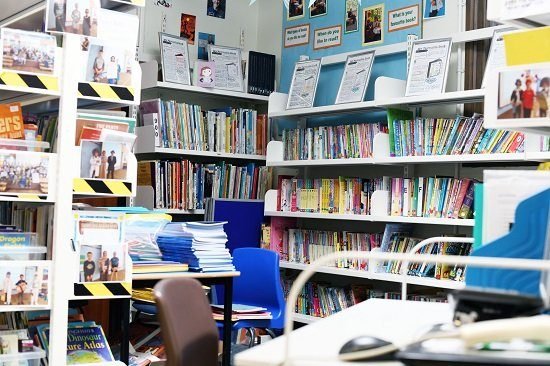
The children are taught in ability sets for all Maths lessons. We follow the White Rose Small Steps scheme. All lessons begin with a number starter and this is to enable the children to continually rehearse their number knowledge and methods. The children are exposed to fluency, reasoning and problem-solving tasks throughout the lessons to allow them to embed and practise their learning.
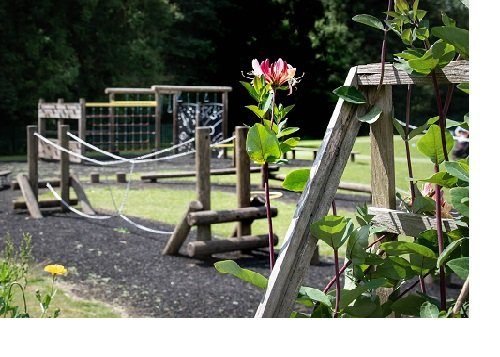
The children cover a variety of topics throughout their time in UKS2.
The subjects consist of: History, Geography, Science, Design and Technology and Art.
We seek to cover both subject specific skills and knowledge in these sessions and we aim to encourage the children to ask further questions about the areas they are learning and to inspire them to study these subjects further in the future.
For more information about the National Curriculum strands that are covered in each of the topics, please see the long-term curriculum maps.
The children in UKS2 take part in weekly Religious Education lessons.
The units are:
The Exodus – Why is the Exodus such a significant event in Jewish and Christian history? + World Faith Unit Judaism
Christian Worship – Why do Christians sing in worship?
Christmas – How is Christmas celebrated around the world?
God – What is the nature and character of God? + World Faith Unit – Have you discovered any beliefs about God in common across different faiths? Hinduism and Islam
The Eucharist – Why do Christians celebrate the Eucharist?
Loss, death, and Christian hope – Is death an ending or a beginning? + World Faith Unit – How do people of world faiths mark the end of life? Buddhism, Hinduism, Islam and Humanism
Ascension and Pentecost – What is the importance of Ascension and Pentecost to Christians?
Change the world – How can I make a difference? + World Faith Unit – Looking from different perspectives. Hinduism, Islam, Judaism and Buddhism
Life as a Journey Is every person’s journey the same? + World Faith Unit – Why do people of faith make pilgrimages? Hinduism, Islam, Judaism and Sikhism
Advent – How do Christians prepare of Christmas?
Old Testament Women- Did she make the right choice? + World Faith Unit Judaism
Easter – Why do Christians believe that Easter is a celebration of victory?
People of Faith – How does having faith affect people’s lives? + World Faith Unit – Buddhism, Hinduism and Islam
Daniel – Daniel, did he make the right choice?
Our RE lessons allow the children to deepen their understanding of Christianity and encounter other world religions.
The children have a weekly Computing lesson in the dedicated Computing suite. There is a strong emphasis on E-safety with every year starting with a unit of work on this important topic. Children are encouraged to use technology safely, respectfully and responsibly. The children are able to recognise acceptable and unacceptable behaviour and identify a range of ways to report concerns about content and contact.
The children will develop a wide range of fundamental skills, knowledge and understanding. The topics covered include:
E-Safety – Children will learn about computer networks, the internet and cloud computing and how they help us. They will learn what email is and how we can use it safely whilst also building an understanding of creating a responsible digital footprint.
Coding and Programming – Using Scratch and Python, the children will design, write and debug programmes. They will also learn about virtual reality, binary code and machine learning.
Multi Media – The children will use a range of programs to complete units about graphic design, image editing and web design.
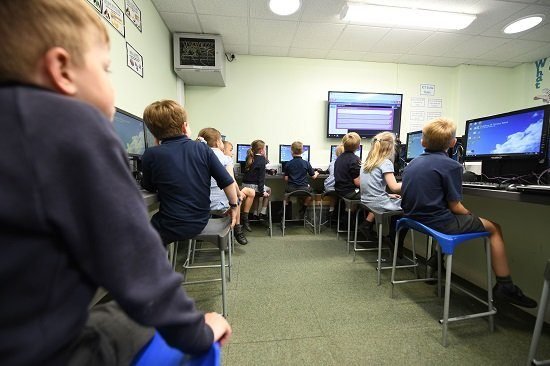
Handling Data – Children will gain an in depth knowledge of how to use Excel to create spreadsheets and to search a database for specific information.
Technology in their lives – Children will gain an understanding of how technology has changed over time and consider the impact that technological changes have had on society. They will predict how technology will change in the future.
We follow the PSHE Association Programme of Study and My Happy Mind Programme. The children take part in a weekly My Happy Mind lessons. The PSHE themes around internet safety and accessing information online safely are covered in our computing curriculum.
The themes for our PSHE lessons are:
Families and friendships: Attraction to others; romantic relationships; civil partnership and marriage.
Safe relationships: Recognising and managing pressure; consent in different situations.
Respecting ourselves and others: Responding respectfully to a wide range of people; recognising prejudice and discrimination.
Media literacy and Digital resilience: Evaluating media sources; sharing things online.
Belonging to a community: Valuing diversity; challenging discrimination and stereotypes.
Money and Work: Influences and attitudes to money; money and financial risks.
Physical health and Mental well-being: What affects mental health and ways to take care of it; managing change, loss and bereavement; managing time online.
Growing and changing: Human reproduction and birth; increasing independence; managing transitions.
Keeping safe: Keeping personal information safe; regulations and choices; drug use and the law; drug use and the media.
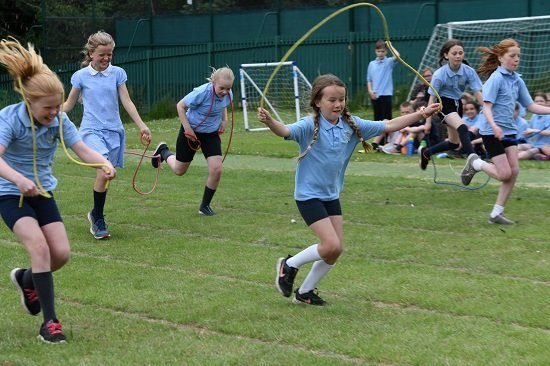
In UKS2, the children follow units of work which build on the skills introduced in EYFS.
Emphasis is made on hand eye co-ordination and teaching different interchangeable skills which can be transferred through many sports. We teach: athletics, tag rugby, orienteering, basketball, netball, cricket, rounders, tennis, dance and gymnastics.
As well as learning skills, the children, linked to their PSHE lessons, learn the importance of keeping fit for both a healthy body and mind. We look at how a healthy diet can improve physical fitness and well-being.
The children also learn about the importance of teamwork and sportsmanship when playing sport and the importance of safety, particularly when different apparatus and equipment is used.
The children also undertake a series of swimming lessons at Bollington Leisure where they are taught the fun and skill of swimming as well as water safety.
In this key stage, the children have the opportunity to represent their school at many different sporting events ranging from cross country to tennis.
“They were all filled with the Holy Spirit, and they began to talk in other languages, as the Spirit enabled them to speak.” Acts 2:4
Learning a language opens the mind to other cultures and liberates from insularity. Our language curriculum is designed to foster curiosity, deepen and broaden understanding of the world and to provide a foundation for learning further languages: paving the way to study/work in other countries. It enables our children to express their ideas and thoughts in another language and to understand and respond to its speakers, both in speech and writing. It also provides opportunities to communicate for practical purposes, learn new ways of thinking and to read great literature in the original language.
The most common holiday destinations visited, by our children, are to Spanish speaking countries. Therefore, having Spanish as our chosen language provides our children with a powerful purpose.
Our language curriculum is ambitious – it exceeds statutory requirements. Although the National Curriculum Programme of Study begins in Key Stage 2, we have designed our curriculum to ensure that our children begin to develop an understanding of Spain and basic language phrases before they reach KS2. Also, links to Spain and Spanish are built into our curriculum to support children with a deeper understanding before being introduced to the language of Spanish. An example being in KS1 Geography, the children learn about the Mexican town, Tulum.
The three main areas in which our curriculum focuses are: Phonics, Vocabulary and Grammar. These areas overlap and develop to improve our children’s understanding and language production.
Each Spanish lesson begins with a phonics focus. There is a clear, logic plan for the progression in phonics, which includes teaching the difference between the language and English. The learning and practice of phonics allows for the range, complexity and accuracy of sounds, words and understanding, and the application of the rules of the language.
In UKS2, the units that children will learn about are:
The Date, My Home, Clothes, Healthy Living, Me in the World, The Weather, Family, Pets, At School, At the Weekend.
In these units the children will embed and build upon their learning in Years 3 and 4, and learn to:
We can provide paper copies of any information free of charge upon request.
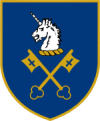
Prestbury CE Primary School
© 2025 All Rights Reserved